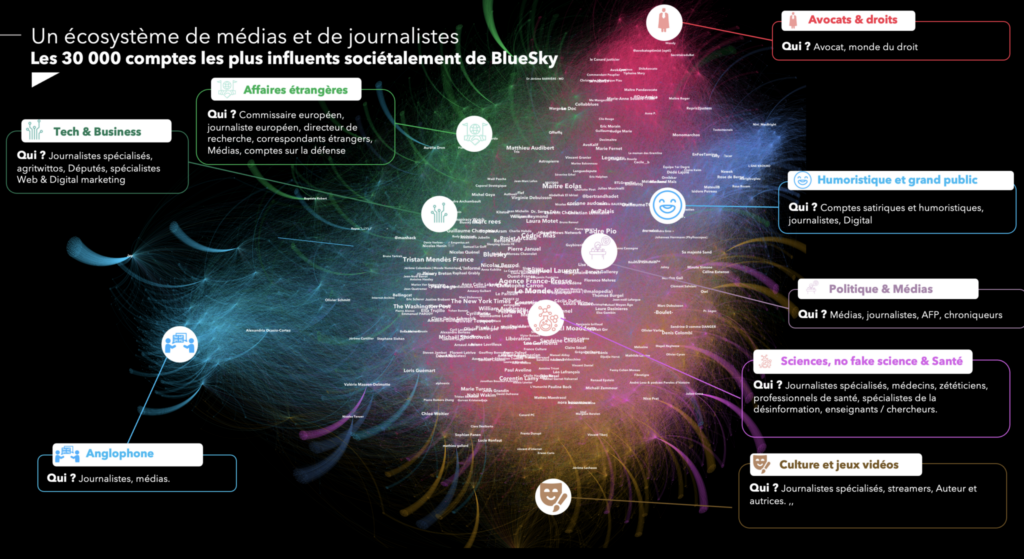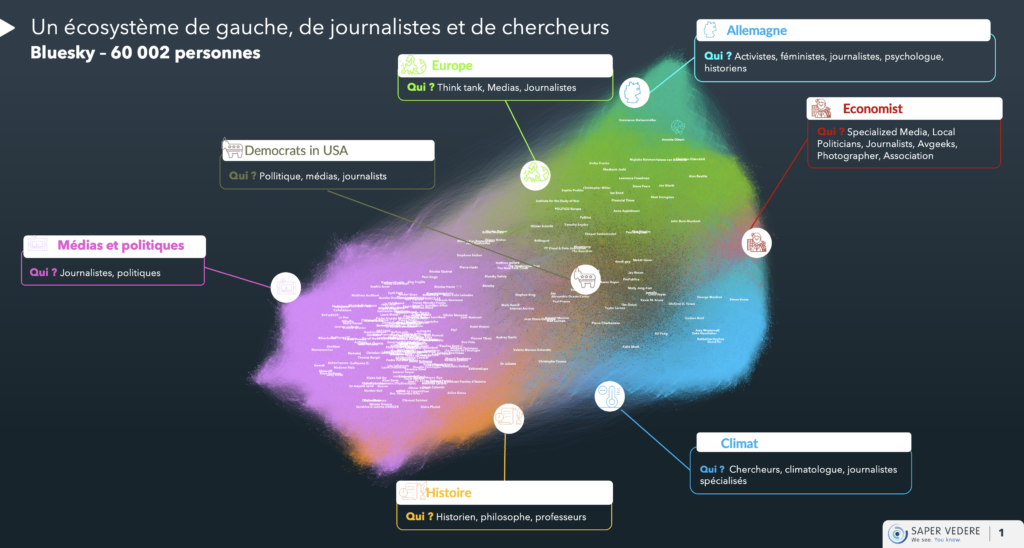Sommaire
Will Bluesky take off?
Since the 2024 US presidential election, which saw Donald Trump return to the White House, many users have turned to alternative platforms such as Bluesky. This decentralised social network, designed to offer users more control and avoid the polarisation of large platforms such as X (formerly Twitter), has seen a massive influx of new subscribers, including political figures, journalists and influencers. This migration, driven by concerns about content moderation and freedom of expression, raises the question: can Bluesky become a credible alternative to the social networking giants?

We wrote a paper at the time on the fact that Bluesky wasn't very interesting:
A year ago, we published an analysis of Bluesky, highlighting its limitations in terms of structure, audience and strategic relevance. We concluded that, despite a calmer atmosphere than Twitter/X, the platform remained too confidential and lacking in innovation to justify a dedicated strategy. We therefore recommended signing up as a precautionary measure, without investing further.
But now the platform seems to have a new influx with 1m users in one day and a total of 20m users. So we decided to take another look at it, taking all the users from our Follaw.sv panel.
Summary
All in all, Bluesky is clearly growing, with the number of interesting players doubling. The platform has picked up all the researchers who exchange information on their research topics. The exchanges are therefore mainly cold, expert content. There is still very little political presence, even though the narratives deployed are very left-wing. Right-wing players are almost totally absent. On the other hand, technically, the platform is still a long way behind.
Organisations with cold content, aimed at research (economics, health, environment and others) should establish a presence, as the number of researchers is impressive. What's more, a good number of journalists and media experts are there, and these can be good relays for corporate communications.
However, it remains to be seen whether the exchanges will continue over time. The fact that there is a bit of an "echo chamber" phenomenon could discourage users. On the other hand, both France and Germany have communities of interest in Bluesky, even though the platform has exploded mainly in the United States.
A broader, more structured ecosystem
As a reminder, we started out as a tiny community with very disparate interests:

This time, we have an ecosystem twice as big (more than 60,000 users who follow at least twice by the players on our panel).

Still very much to the left, and bringing all the players together in a media and political community.
The platform is still very left-wing and has very little right-wing presence. It clearly lacks the political presence of X.
The Lawyers and Rights, Culture and Video Games communities did not stand out. Actors are still present, but they are mostly "Media & politics".
An impressive and wide-ranging presence of professors and researchers
The most obvious and impressive thing is the number of researchers and professors in the ecosystem.
- A high-quality community of economists at international level, with a large number of researchers.
- The whole community around climate researchers. Accompanied by journalists specialising in the subject.
- An extremely well-stocked community of historians, as well as researchers from a number of other disciplines (political science, sociology, humanities).
Countries where Bluesky is more important
It's clear that Bluesky is having more of an impact across the Atlantic, in the USA and Canada following Donald Trump's victory. In addition to these countries, Germany clearly has a strong presence, as it has spilled over from our panel via European channels. Many European think tanks are also present.
Technical capabilities still well below par
Even though Bluesky is making technical progress, notably with the introduction of multimedia functions, i.e. the ability to publish videos and GIFs, certain functions present on X are still missing from Bluesky. For example, thread management for structuring long and complex discussions has not yet been optimised. In addition, tools such as private messages, polls and an advanced algorithmic recommendation of accounts to follow are not yet available on the platform. These shortcomings may limit the engagement of users who are used to these tools on X.
So it's still very light. All the more reason to slow down adoption of the platform.
Content like X
The content is just like on X when you're browsing the platform. On the other hand, the exchanges are obviously more constructive, cooler and more expert. This is undoubtedly one of the reasons for the platform's success at the moment.



